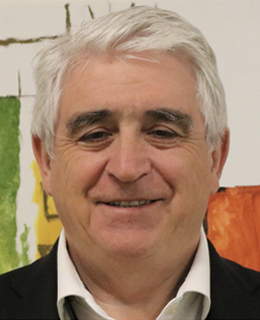
Guy André BOY
CentraleSupélec (Paris Saclay University) & ESTIA
Professor & Chair
Lecture Title: Human Systems Integration
Lecture Summary/Abstract:
This keynote will emphasize a growing research and practice field, Human Systems Integration (HSI), which denotes both a process and a product at the confluence of several areas, such as systems engineering, human factors and ergonomics, information technology, and specific sectors, such as aerospace, health, and energy. It will provide state-of-the-art and current development of consistent terminology and, to some extent, an acceptable ontology of HSI for the analysis, design, development, and evaluation of socio-technical systems. HSI is a broader transdisciplinary field in our increasingly complex human-machine world that focuses on integrating technology, organizations, and people within a complex sociotechnical system throughout its life cycle. Therefore, HSI is no longer a question of usability and user interface design once a complex machine is technologically developed but essentially about considering people and organizations early in the design and development processes. Indeed, rooted in industrial and systems engineering research and operational worlds, HSI requires a deeper foundation based on an epistemological approach. This assertion is even more crucial today as technology has become predominantly digital, and, more specifically, the concept of the digital twin is emphasized because it has become essential to support Model-Based HSI (MBHSI). In other words, software-based assistant systems are replacing traditional tools for modeling, documenting, and supporting socio-technical systems. Therefore, appropriate social-cognitive (multi-agent) models and methods are helpful throughout the life cycle of contemporary sociotechnical designs to account for the complexity and tangibility of their human-centered context-sensitive architectures, combining procedural and declarative knowledge. These architectures must be flexible and robust enough to handle normal, abnormal, and emergency operational situations, which can be expected or unexpected. Considering these reasons, this keynote will provide a set of fundamental axioms, some theoretical abstractions, and valuable practical models, which will be presented and illustrated through contemporary examples useful for validating an evolutionary HSI ontology.
Biography:
Guy A. Boy, Ph.D., is a University Professor at Paris Saclay University (CentraleSupélec) and Chairman of the Scientific Council of ESTIA Institute of Technology, France. He is also Visiting Scholar at ISAE-SUPAERO (the French Aerospace Institute of Technology). He is an INCOSE Fellow (Human-Systems Integration [HSI] Working Group Chair and member of the FuSE project), Fellow of the French Air and Space Academy, and Fellow of the International Academy of Astronautics. He is very active in the development of HSI worldwide. He was Professor and Dean of the Florida Institute of Technology Human-Centered Design Institute (HCDi), and HCD Doctoral School, Senior Research Scientist at the Florida Institute for Human and Machine Cognition (IHMC), and IPA Chief Scientist for HCD at NASA Kennedy Space Center. He was a member of the Scientific Committee of the Single European Sky for Air Traffic Management Research (SESAR) program from 2013 to 2016. He was Chairman of the Organizing Committee of the ISU (International Space University) SSP (Space Studies Program) FIT/NASA-KSC 2012 (SSP12). He has been an adjunct professor at the École Polytechnique de Paris (Comasic Master). He was a member of the Board of Professors of the Master in Complex Systems Engineering of Paris Saclay University. He was President and CEO of the European Institute of Cognitive Sciences and Engineering (EURISCO, a research institute of Airbus and Thales). He co-founded EURISCO in 1992 and led it from its creation until its closure in 2008. Between 1980 and 1991, he worked in artificial intelligence and cognitive sciences at ONERA (French Aerospace Lab) as a researcher and group leader and at NASA Ames Research Center in California as the Advanced Interaction Media Group Lead. Engineer and researcher in cognitive sciences, he obtained his degrees (including a Master's in 1977 and Doctorate in 1980) from ISAE-SUPAERO (French Aerospace Institute of Technology), the Research Professor Habilitation (HDR) from Sorbonne University in 1992, and his Qualifications of University Professor in Computer Science and Psychology in 1994.
He actively introduced and developed Cognitive Engineering, HCD, and HSI worldwide, notably within ACM (Association for Computing Machinery), IEA (International Ergonomics Association), and INCOSE. He co-founded Bordeaux's French Cognitive Engineering School (École Nationale Supérieure de Cognitique or ENSC). He co-founded the HCI-Aero conference series (1986-2016) that led to INCOSE HSI Conferences and Workshops. He is the author of more than 200 refereed scientific and technical papers and several university textbooks, such as Intelligent Assistant Systems (Academic Press, USA, 1991), Cognitive Function Analysis (Praeger, USA, 1998), the Handbook of Human-Machine Interaction (CRC, USA, 2011), Orchestrating Human-Centered Design (Springer, UK, 2013), Tangible Interactive Systems (Springer, UK, 2016), Human Systems Integration (CRC, USA, 2020), Design for Flexibility (Springer, UK, 2021), and Risk Taking, Prevention and Design (CRC, USA, 2022). He was elected Senior Member of ACM in 2009 (Executive Vice-Chair of ACM-SIGCHI from 1995 to 1999) and Chair of the International Ergonomics Association (IEA) Aerospace Technical Committee (2008-2022). He is the Ambassador of the INCOSE-IEA partnership worldwide since 2021.






 loading......
loading......